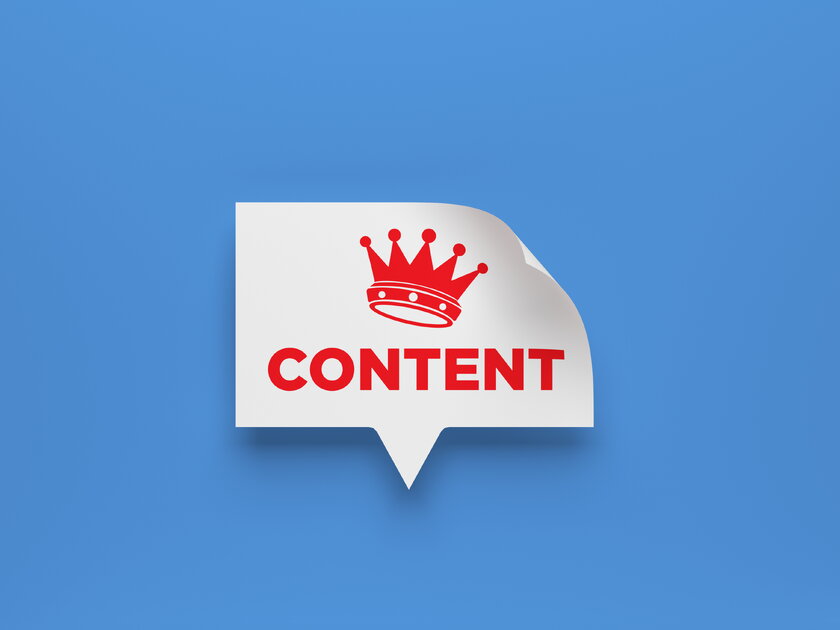How to Build the Best Content Marketing Strategy
Free Business Plans & Templates

Why Do Small Businesses Need Content Marketing?
Content marketing offers numerous benefits to small businesses, solopreneurs, and founders in the U.S. It helps...
- build brand awareness,
- establish credibility,
- generate leads,
- enhance search engine visibility,
- foster customer loyalty, and
- provide a cost-effective marketing strategy.
By investing in content marketing, small businesses can effectively reach and engage their target audience, ultimately driving business growth.
What Are the 4 Main Categories of Content Marketing?
The four categories of content marketing offer companies a wide range of approaches to engage their target audience, build relationships, and achieve their marketing goals. A successful content marketing strategy therefore often includes a mix of these categories to meet the different preferences and goals of your target audience.
Golden Rule: Educate, Entertain and Engage!
The four main categories of content marketing are:
1. Educational Content
Educational Content focuses on providing valuable information, insights, and knowledge to the target audience. It aims to educate and empower readers by answering their questions, solving their problems, or teaching them something new. Educational content can take the form of blog posts, how-to guides, tutorials, whitepapers, e-books, or instructional videos.
2. Entertaining Content
Entertaining content aims to captivate and engage the audience by providing them with enjoyable and engaging experiences. It is designed to evoke emotions, spark curiosity, and entertain the readers or viewers. This category includes content such as humorous videos, entertaining social media posts, quizzes, interactive games, or storytelling pieces that engage and entertain the target audience.
3. Inspirational Content
Inspirational content is designed to motivate, inspire, and evoke positive emotions in the audience. It aims to create a connection with the readers or viewers by sharing stories, experiences, or examples that inspire them to take action or pursue their goals. Inspirational content can take the form of success stories, motivational quotes, personal anecdotes, or thought-provoking articles.
4. Promotional Content
Promotional content focuses on promoting a product, service, or brand. It aims to generate interest, drive sales, and encourage conversions. This category includes content such as product descriptions, promotional videos, case studies, customer testimonials, or limited-time offers. While promotional content is more directly focused on sales, it is important to balance it with the other categories to provide value to the audience and avoid being overly sales-oriented.
Which Content Marketing Is Best?
The best content marketing approach depends on understanding your target audience, their preferences, and the business's specific goals. A well-rounded strategy often combines multiple approaches and experiments to find what resonates best with the target audience and achieves the desired outcomes.
Here are a few popular content marketing approaches:
- Blogging: Blogging is a widely used and effective content marketing strategy. It involves regularly publishing blog posts on topics relevant to the target audience. Blogs provide an opportunity to share educational, informative, and engaging content, improving search engine visibility, and establishing thought leadership.
- Video Marketing: Video marketing has gained significant popularity in recent years. Creating and sharing videos can be highly engaging and shareable, allowing businesses to communicate their message effectively. Videos can be used for product demonstrations, tutorials, interviews, or storytelling, depending on the business's objectives and target audience.
- Social Media Marketing: Leveraging social media marketing is an effective way to distribute and promote content. Businesses can share blog posts, videos, infographics, or other content formats on platforms like Facebook, Twitter, Instagram, or LinkedIn to reach a wider audience, foster engagement, and drive traffic to their website.
- Email Marketing: Email marketing involves sending targeted content directly to subscribers' inboxes. It allows businesses to nurture leads, build relationships, and promote products or services. Personalized newsletters, exclusive offers, or educational content can be shared through email campaigns to engage and convert subscribers.
- Influencer Marketing: Collaborating with influencers in the industry can help amplify the reach and credibility of content. Influencers can create and share content related to the business, targeting their own loyal audience. This strategy can increase brand visibility, attract new customers, and drive conversions.
- Interactive Content: Interactive content, such as quizzes, assessments, polls, or interactive infographics, encourages active participation from the audience. It provides an engaging and personalized experience, increasing the chances of capturing attention, collecting data, and driving conversions.
photo credit:
iStock.com/Baris-Ozer


